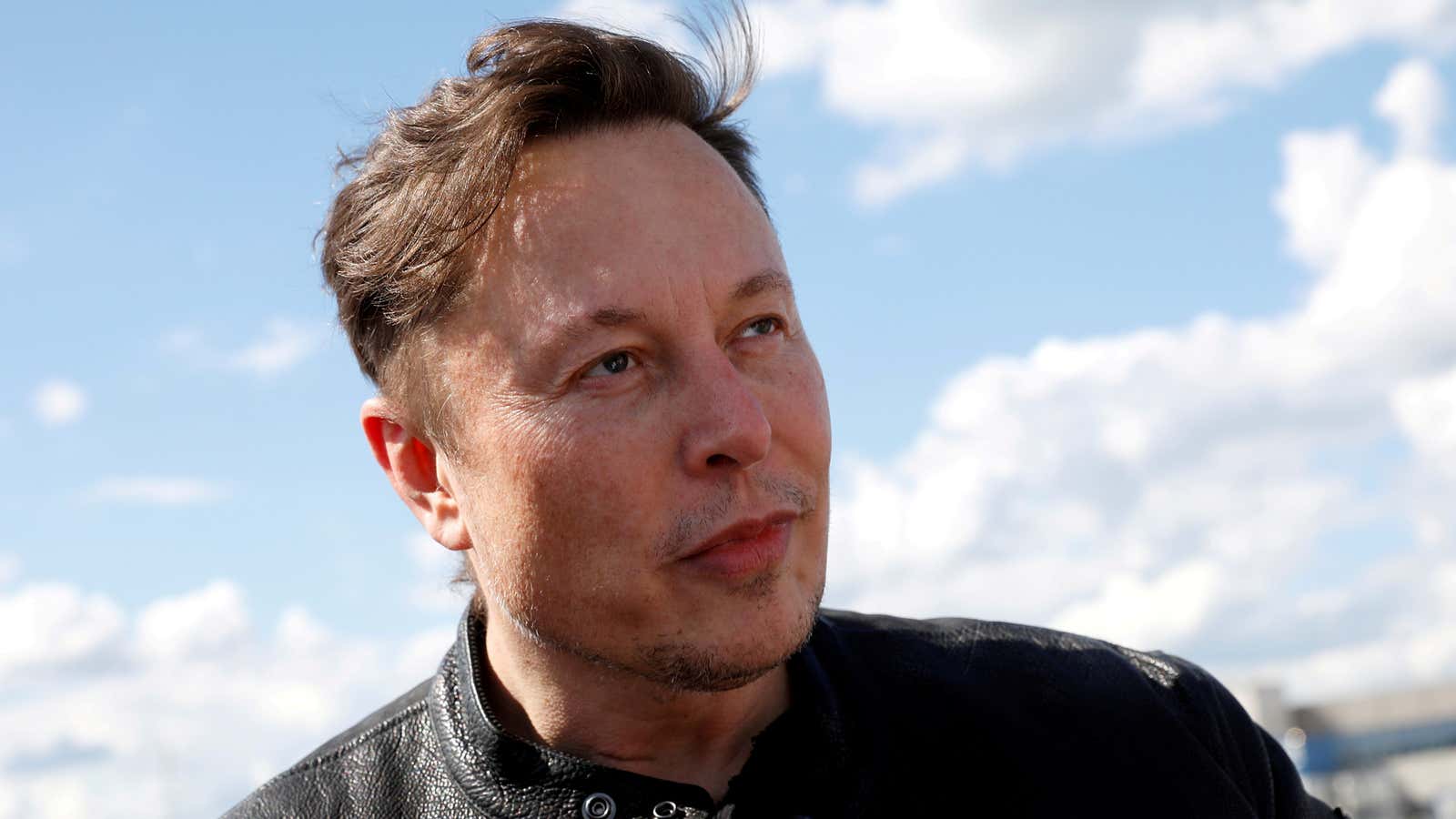Elon Musk asked Twitter for help with a huge financial decision. “Much is made lately of unrealized gains being a means of tax avoidance,” he tweeted to his 63 million followers on Nov. 6, likely referring to Democratic lawmakers’ calls for a “billionaires tax.” “So I propose selling 10% of my Tesla stock.”
More than 3.5 million votes poured in by the time the poll closed, and almost 58% were in favor of selling.
“I will abide by the results of this poll, whichever way it goes,” Musk, who owns more than 22% of the world’s most valuable car company, had said earlier. He is yet to comment on its outcome. But if the world’s richest man sticks to his word, he is due to shed $21 billion worth of stock.
Will Elon Musk sell his Tesla shares?
The billionaire entrepreneur, now known as “Lorde Edge” on Twitter, doesn’t take a salary or a cash bonus. His wealth comes from stock awards and the gains in Tesla’s share price.
With or without Twitter’s approval, he’s probably selling.
Here’s why: Musk was awarded stock options in 2012 and 2018. The older one, which expires next August, allows him to buy 22.86 million Tesla shares at $6.24 each—a massive discount considering the automaker’s share price is currently at $1,222. Musk would effectively earn over $27 billion by purchasing those share options now.
The Tesla co-founder and CEO doesn’t have to purchase the options, but in June, he hinted that he will. Again in a September interview, Musk said, “I have a bunch of options that are expiring early next year so that huge block of options will sell in Q4—I’ll have to or they’ll expire.”
However, Musk—who sold off all his houses and now rents a 400 square foot unit on his SpaceX site in Texas, and has taken loans using his shares as collateral—needs cash to afford these bargain-priced shares. The simplest way to get that cash is to sell shares he already owns.
The Tesla CEO has sold shares twice before since Tesla went public—once after the 2010 IPO, and once to cover taxes for options he exercised in 2016.
Typically, insider selling is considered a bad sign, but that’s probably not the case with Tesla, experts say. And tweeting about it was likely a way of priming Tesla-watchers that sales are coming. Also, Musk won’t offload all 17 million shares—10% of the 170 million he currently has—all at once. The sales will likely be staggered.
Elon Musk’s tax bill
Another big reason for selling is likely that, in order to exercise the stock options, Musk has to pay income tax on the gain.
Musk, who said his tax rate is 53%, expected to pay a “huge amount” when the options expire. And he wasn’t wrong: The tax bill, which includes a 37% income tax rate, 3.8% net investment tax, and 13.3% top capital gains tax in California, will exceed $15 billion, CNBC estimates.
While most are in favor of Musk selling, some find the move ineffectual—at least from a tax perspective.
“From a diversification and valuation perspective the sale makes a lot of sense. The fact that you’ll have to pay taxes on the proceeds however is not a net benefit to society,” tweeted Peter Schiff, chief economist at investment advisory firm Euro Pacific Capital. “The public would be better served by you wisely investing that money rather than government wasting it.”
Others warned that the stock will fall and “hurt many more investors” than it will help the government. “Success is penalized and harmed, which would change risk-taking and capital formation,” said venture capitalist Frank Holmes.
Meanwhile, Tesla’s shares fell about 9% after his poll. Musk’s tweets have moved the stock before, and the US Securities and Exchange Commission (SEC) has not been happy about it. Musk is supposed to consult an attorney before he posts anything Tesla-related. It’s not clear if that happened this time.
